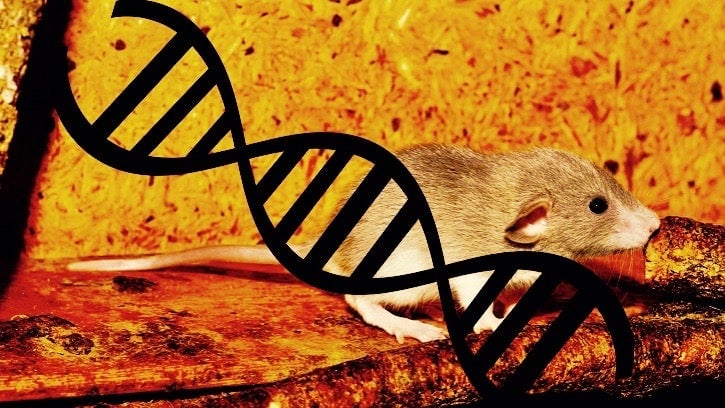Geneticists propose a London pest-control plan straight out of sci-fi
Our destiny should have been obvious. It was written long ago in a poem. First, they came for the rats, and I did not speak out—because I was not a rat.


United Nations Human Preservation Project (UNHPP).
Bunker #9. London. 2050.
Our destiny should have been obvious. It was written long ago in a poem. First, they came for the rats, and I did not speak out—because I was not a rat.
Here’s what happened. In December 2017, Cell Press reported that geneticists at the University of Edinburgh in Scotland proposed a new approach to pest control. They would attack rat sperm at the DNA level, using Crispr gene-editing technology to eliminate X chromosomes and thus end female births, slowly but surely killing off the species. Nice and neat.
“For the first time we have the makings of technology that could reduce or eliminate a pest population in a humane and species-specific manner,” geneticist Bruce Whitehall of the school’s institute for animal research told the Telegraph. ”It’s time to explore what this technology can do.”
From the start, researchers warned that genetically modified animals could “escape” the target population, affecting “extraneous ecosystems.” One of many big risks in deploying the rodent controls was that choosing one animal didn’t guarantee that genetic alteration would stop there. It could spread to “a non-targeted individual” or place, the scientists said.
Still, similar gene drive efforts were already being tested on mosquitoes, they noted. So why not rodents?
What could we lose besides everything? It was an exciting time. Humans trusted Science. God was dead. We were in charge. We of course knew about unintended consequences, just couldn’t seem to internalize the seriousness.
The plan was approved, and not just in London but in many major cities around the world. Geneticists set the mutant rats loose in the cities to copulate and breed only males. Female-rat births dropped and dropped and the rodents soon stopped breeding altogether.
Then the bugs swarmed because there were no rats to eat them. So the geneticists came for the roaches. And I didn’t speak out because I’m no roach.
Still, I suspected then—by 2027—that someone, maybe a rogue state, or an evil secret society, was planning to someday “humanely cull and control” people, just like those mutant creatures we were using to breed our enemies out of existence. And I did not speak because I was old and over it. Plus, it would have sounded paranoid.
To some extent I was right though—it’s just the enemy I got wrong.
The mosquitos came, with their edited DNA, and transmitted new viruses that may have been caused by their gene edits or something they picked up from a mutant rat. At that point, authorities didn’t know much but certainly saw the need for a UN Human Preservation Project that would counter the unintended consequences of the UN Crispr Gene Drive Species Control Plan.
Nonetheless, human infertility quickly became an epidemic. By 2040, children were barely being born, world economies were in shambles, and civilization was in total disarray. Add to that the fact that the few women who did give birth consistently had male children and it was obvious, according to UNHPP’s calculations, that humanity would disappear unless the agency stepped up preservation efforts ASAP.
The bugs came for us—and someday there will be no one left to speak. London’s overrun with men. The few women live in underground UNHPP bunkers, wondering whether and when to emerge, asking what’s the point of living, loving, or giving birth in this dismal world.
When scientists warned of the mutant mosquitoes infecting us genetically, many scoffed. But I thought it made sense, really. Only fitting for us to be outwitted by a miniature enemy with epic skills, for only the fittest survive, and humans are famously too clever for their own good.
Please note: The study discussed herein is fact, as are Bruce Whitehall’s quotes. But it’s not 2050 and UNHPP is fictional.